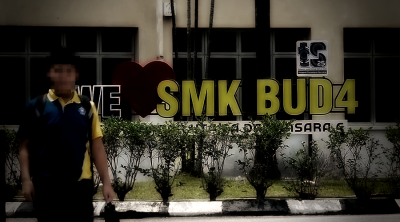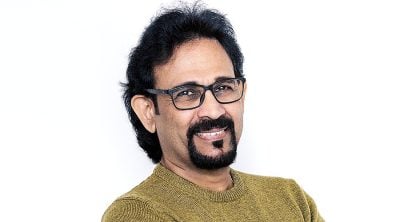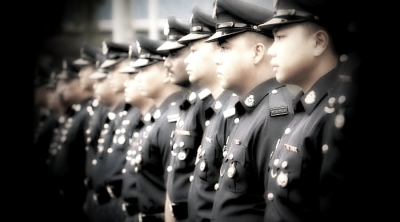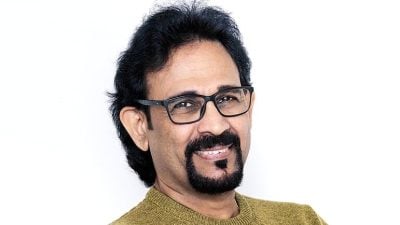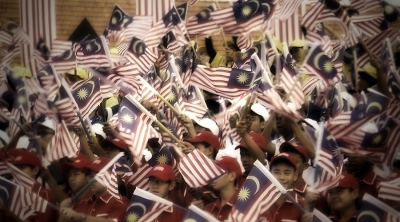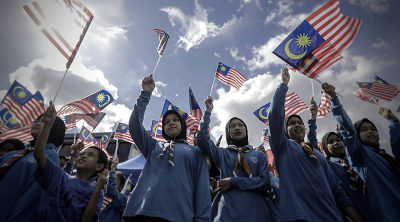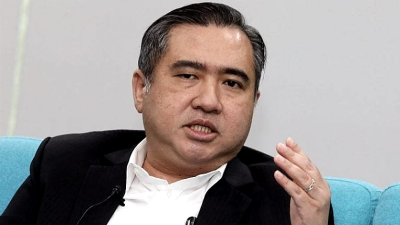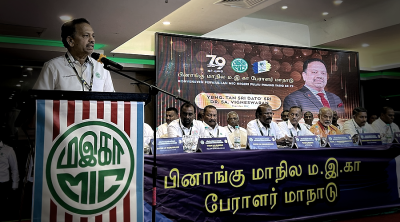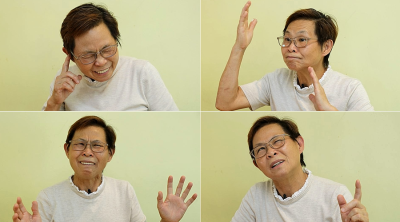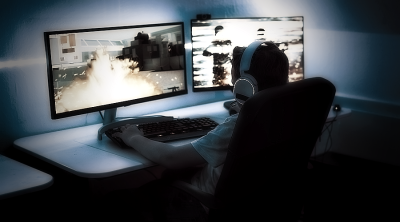
Malaysia has long boasted of being a multiracial and multicultural nation.
The mix of Malays, Chinese, Indians and various indigenous groups is seen as a strength, contributing to the country’s rich tapestry of traditions, languages and religions.
However, lately there seems to be a growing sense of division – one that has quietly crept into the everyday lives of ordinary Malaysians.
The recent announcement by the de facto Islamic Affairs Minister Na’im Mokhtar on the guidelines for Muslims attending events or celebrations held at non-Muslim houses of worship, such as weddings and funerals, has literally broken the camel’s back.
Are we, as a nation, becoming more distanced from one another? Are we no longer the same Malaysians who once ate at the same table at any shop, regardless of the owner’s race?
Why have all the sharing and caring that was done together during our childhood days be defined by separation once we reach the age of adulthood?
My personal story of division
While trying to organise a gathering of old school friends during Chinese New Year, I was reminded of this widening divide.
Our group, made up of Malays, Chinese, and Indians, had always been close-knit during our schooling years from 1967 to 1975.
We ate, played and studied together, shared the same classrooms, sat for the same exams. The bond we forged during those years felt unshakable.
However, I was most disheartened upon sending out the invitations for the CNY gathering.
Whilst most of my Chinese and Indian friends responded positively, eager to reconnect, only one Malay classmate showed any interest.
Despite my reassurance that the gathering was to be held at a halal restaurant, none of the other Malays expressed any desire to join.
This incident troubled me deeply. It made me question what had changed since those care-free days at school when our differences were not barriers but sources of curiosity and camaraderie.
I could only wonder as to what the source was that had made us grow more distant over the years – was it something as simple as religion, race, or just time?
The shifting tides of unity
In the past, Malaysian society, especially in urban areas, had a far more integrated and harmonious quality.
Malays, Chinese, and Indians often mingled freely, be it at local shops, hawker stalls, or even during school and college activities, the shared spaces were neutral grounds where food, laughter, and friendship overcame the distinctions of race and religion.
The ethnicity or religion of the shop owner was never a matter of concern – we would sit together, enjoy the same meal, and engage in conversations that transcended our ethnic backgrounds.
But now, it seems that this openness has started to fade.
The questions that weigh heavily on my mind are simply why and how did we Malaysians evolve from a society where everyone was welcome at the same table, to one where division seems to be the default.
Perhaps one explanation could lie in the increased polarisation of the political landscape.
Politics in Malaysia has become more identity-driven, with parties often emphasising racial and religious lines to secure votes.
As political discourse increasingly centres around ethnic and religious differences, it becomes harder for ordinary Malaysians to resist the pressure to conform to these identities.
The same forces that create policies to promote one group’s interests over another’s also subtly reinforce the sense of “us” versus “them”.
The role of education and upbringing
Another factor contributing to this divide could be found in the education system.
Reflecting on my years spent in school, I remember classrooms that were a microcosm of Malaysia’s diversity.
We learned, competed and celebrated festivals together. However, over the years, the curriculum has become more segregated, focusing more on reinforcing individual ethnic identities rather than fostering a broader, national identity.
Schools increasingly reflect the racial divide seen in society, and this is where our children begin to learn what they are supposed to believe about race, religion, and nationhood.
Moreover, many Malaysians grow up in ethnic silos, with little opportunity to meaningfully engage with others outside their racial or religious communities.
When families tend to stick to their own racial group for socialising, it sends a subtle but powerful message about the “right” way to relate to others.
These norms are further reinforced by the media, which often sensationalises issues of race and religion.
As a result, young Malaysians grow up with pre-conceived notions of their fellow citizens based on their ethnicity, without ever really having the chance to get to know one another as individuals.
The influence of politics
Perhaps the most significant force in fostering division lies in the hands of the political system.
For decades, the political discourse in Malaysia has often revolved around race-based politics.
This strategy, used by various political parties to maintain power, has only deepened the divisions between the different ethnic groups.
Policies that favour one race over another have contributed to resentment and distrust, breeding a climate where solidarity is replaced by suspicion.
The creation of ethnic-based parties and government initiatives aimed at benefiting one group over another further entrench these divisions.
When political leaders frame issues primarily through the lens of ethnicity, it becomes harder for people to see each other as fellow Malaysians rather than representatives of their ethnic communities.
This system creates a kind of “othering” where the Malays may be seen as distinct from the Chinese or Indians, and vice versa.
In this context, even the most innocent of social gatherings can feel laden with political significance, and the fear of “crossing boundaries” becomes ingrained.
The recent announcement of the de facto Islamic minister is somewhat similar to this.
The lack of shared purpose
Over time, we have also lost a unifying purpose. In the early years of Malaysia’s independence, the shared struggle to build a new nation under the banner of Merdeka (Independence) brought people together.
The Merdeka parade, the Prime Minister’s open house during festive seasons, and the shared joy of national achievements were moments when Malaysians of all backgrounds could come together as one.
But as time has passed, these occasions have become more symbolic rather than practical.
They are events that feel distant, a fleeting reminder of a time when we were all bound together by a common vision for the future.
Now, with fewer shared spaces for engagement, Malaysians are left to wonder whether there is still a reason to come together.
When political leaders no longer emphasise national unity as a central theme, when school systems fail to encourage cross-cultural dialogue, and when social media amplifies our divisions rather than our commonalities, it becomes harder to see a way forward.
Repairing the bond
So, what can we do to bridge this divide?
First and foremost, we must recognise that unity is not something that can be legislated or enforced. It must be cultivated through genuine relationships and a shared commitment to understanding and respecting each other’s differences.
Initiatives that promote interfaith and inter-ethnic dialogue – whether through community activities, school programs, or local initiatives – can help foster mutual respect.
Education should be about more than just textbooks; it should include the teachings of empathy, cooperation, and the value of diversity.
We must also challenge the narratives that seek to divide us. Instead of focusing on our differences, we should celebrate our common identity as Malaysians.
We must also be more deliberate in creating spaces where people from different backgrounds can meet, interact, and build trust. For instance, a group of old friends reuniting at a halal restaurant – this effort may seem small, but vital to rebuild the social fabric that is slowly thinning as time passes.
Finally, as citizens, we must hold our leaders accountable for policies that promote unity rather than division.
Everything in Malaysia works from top to down, otherwise we are just converting the converted:
■ The National Unity Ministry needs to step up immediately. They have been lying under the radar for too long! Time to roll up their sleeves and get to work.
■ Universities should organise talks on National Unity.
■ Dewan Bahasa dan Pustaka should house books and written works on topics of unity and diversity.
■ Mosques should hold forums on unity. I have moderated such forums in a church in Cheras and even in a Buddhist temple, talking about unity through religious diversity.
■ More textbooks should be written and published under the banner of Unity and Malaysia in all languages for schools up to Form Six.
■ Media stations like RTM and TV3 should organise more forums under Unity seeking Malaysians to come up and share their experiences.
■ The MCMC should encourage writing contests or art competitions through social media seeking opinions from Malaysians, by working closely with the National Unity Ministry.
■ Rather than placing Madani billboards everywhere please put unity billboards and messaging for the rakyat, let not politicians break us away!
In the end, we must ask ourselves if we are truly the same Malaysians who once played and studied together, or have we allowed the forces of division to tear us apart.
It is up to each and every one of us to decide. Only then can we hope to repair the bonds that once made us one nation, united in our diversity.
Our forefathers have done a great job of building a beautiful nation, let’s not demolish it.
(Ravindran Raman Kutty is an active social worker.)
ADVERTISEMENT
ADVERTISEMENT






